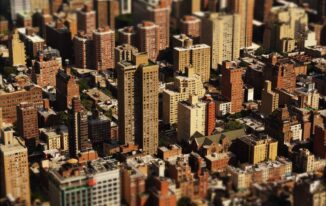Noise pollution in the home can be a significant source of stress and disturbance, affecting everything from your sleep quality to your overall well-being. Fortunately, you can implement several effective strategies to minimize unwanted noise and create a more tranquil living environment. Here are some practical tips for reducing noise pollution in your home.

- Soundproofing Windows and Doors
One of the primary entry points for external noise is through windows and doors. Replacing thin windows with double or triple-glazed units can dramatically reduce the penetration of outside noises such as traffic, construction, and neighborhood activity. Consider adding solid core doors, which are more effective at blocking sound than hollow core doors. Weather stripping and door sweeps can also seal gaps under doors to further dampen outside noises.
- Using Soft Furnishings and Textiles
Soft materials are excellent at absorbing sound. Utilize heavy curtains, plush 5×11 area rugs, and upholstered furniture to help absorb internal noises such as conversation, television, and music. This is particularly effective in high-traffic areas like living rooms and hallways. Wall hangings and tapestries can also add a layer of sound insulation as well as aesthetic appeal to your rooms.
- Installing Acoustic Panels
Installing acoustic panels can be a worthwhile investment for homes with severe noise issues, especially in multi-residential buildings. These panels are designed to absorb sound and are commonly used in recording studios and home theaters. They can be strategically placed in areas where noise is a particular problem, such as shared walls or ceilings.
- Landscaping as a Sound Barrier
Outside your home, consider using landscaping to create natural sound barriers. Trees, shrubs, and bushes not only enhance the beauty of your outdoor space but can also significantly reduce noise pollution. Dense plantings will help deflect and absorb sounds from the street or noisy neighbors. Constructing high fences or privacy screens for urban areas can also help block noise.
- Upgrading or Adding Insulation
Improving the insulation in your walls, ceilings, and floors can significantly reduce the transmission of sounds from both outside and inside the home. This not only helps with noise reduction but also improves the energy efficiency of your home. For added sound dampening, specialized soundproofing insulation materials are available that are specifically designed to reduce noise transfer.
- Choosing Quieter Appliances
Household noise isn’t just about what comes from outside; appliances can also be a major source of sound. When it’s time to replace or upgrade, look for appliances specifically engineered to operate quietly. Many modern dishwashers, washing machines, air conditioners, and refrigerators offer quiet models that can significantly reduce ambient noise in the home.
- Regular Maintenance
Sometimes, persistent noise is due to something that can be fixed, like a rattling AC unit or a squeaking ceiling fan. Regular maintenance of household systems and fixing loose parts can prevent these noises from becoming a nuisance.
Conclusion
Reducing noise pollution in your home involves a combination of soundproofing, strategic use of soft furnishings, and smart landscaping. By implementing these strategies, you can create a more peaceful and enjoyable living environment, enhancing your comfort and health.



